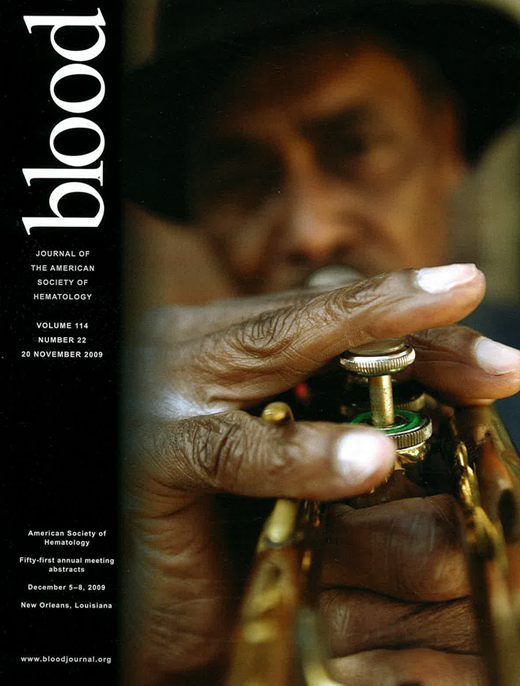Abstract
Abstract 4872
Prognosis in AL amyloidosis is commonly viewed as dichotomous, based on the presence or absence of cardiac involvement. Patients with cardiac AL amyloidosis are reported to have a dismal prognosis, with a median survival of approximately 6 months. Furthermore, cardiac involvement is often considered a contraindication to hematopoietic cell transplant.
To compare the prognosis of patients with cardiac AL amyloidosis with and without presenting symptoms of congestive heart failure (CHF).
The study population consisted of individuals with biopsy-proven AL amyloidosis and cardiac involvement seen at the Stanford University Amyloid Center. Cardiac involvement was defined by the presence of amyloid deposits on endomyocardial biopsy or the combination of increased ventricular mass with reduced electrocardiographic voltage.
A total of 27 patients (median age 64 years, 37% female) were evaluated. The 16 patients with CHF symptoms had a median age of 65 years with a median of 2 organs involved with amyloidosis. The 11 patients without CHF symptoms had a median age of 59 years with a median of 3 organs involved. At diagnosis, NT-proBNP was significantly higher in the group with CHF symptoms (15,938 vs. 2,538 pg/ml, P<0.001), as was the likelihood of detectable troponin I (86% s. 36%, P<0.02). Mean levels of the involved serum free light chain (179.7 vs. 47.9 mg/dL) were nonsignificantly higher in the cohort with CHF. Though there was no difference in the mean interventricular septal width between the two groups (1.5 cm), the mean systolic blood pressure (sBP) (91 vs. 115 mm Hg, P<0.001) and left ventricular ejection fraction (45 vs. 59%, p=0.02) were significantly lower in the group with CHF symptoms. A total of 6 patients (4 without CHF symptoms, 2 with CHF symptoms) received hematopoietic cell transplants, and 3 patients received heart transplants. Other therapies employed included oral melphalan (6 patients), dexamethasone (19 patients), lenalidomide (17 patients), and bortezomib (4 patients). After a median follow-up of 24 months, there were 9 deaths in the cohort with CHF symptoms vs. 0 in the group without CHF symptoms. Six-month survival (50% vs. 100%, P<0.01) and one-year survival (42% vs. 100%, P<0.01) were significantly lower in the group with CHF symptoms.
CHF at presentation is the primary factor which predicts a poor prognosis in patients with cardiac AL amyloidosis. In our cohort, no patient without CHF symptoms at diagnosis later developed CHF, and thus new CHF symptoms do not appear to be a typical consequence of progressive disease.
Not all patients with cardiac AL amylodosis have an exceptionally poor prognosis. Many patients have ‘incidental’ cardiac involvement in the absence of CHF symptoms and appear to do well with both standard and intensive therapies.
Witteles:Celgene: Research Funding. Off Label Use: Melphalan, lenalidomide & bortezomib as therapy for AL amyloidosis.. Witteles:Celgene: Research Funding. Schrier:Celgene: Research Funding.
Author notes
Asterisk with author names denotes non-ASH members.

